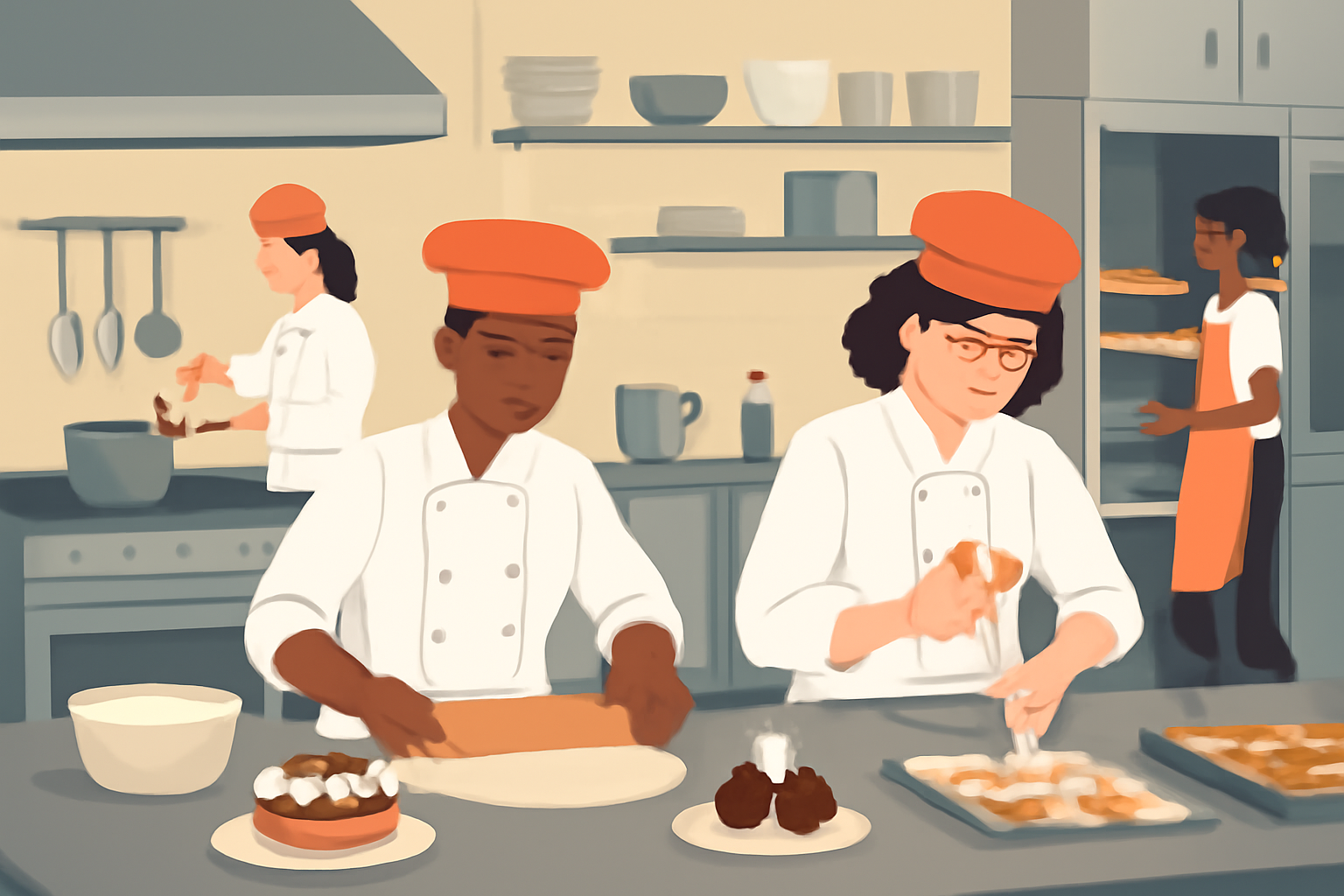
Women have historically faced significant challenges in many professional fields, including the culinary world. Despite notable advancements in representation and recognition, the pastry department often becomes a space where women chefs find themselves pigeonholed. This trend has roots in both societal stereotypes and institutional barriers within the culinary industry.
The Historical Context of Gender Roles in the Kitchen
Traditionally, professional kitchens have been male-dominated spaces, mirroring the broader societal norms that relegated women to the domestic sphere while men occupied public roles. Despite being more accepted in the kitchen, women often find themselves restricted to specific roles, such as pastry chef, under the assumption that these positions are more suited to their skills and temperaments.
Stereotypes and Perceptions
The persistent stereotype that baking and pastry require a "feminine touch" perpetuates gender biases. While tasks associated with pastry can be perceived as requiring less physical strength than line cooking or grill work, they demand an entirely different set of skills such as precision, patience, and creativity. These perceptions often result in women being typecast and disproportionately represented in these roles.
Institutional Barriers
Many culinary institutions influence this segregation. In some culinary schools, there seems to be an unspoken encouragement towards steering women towards pastry programs, subtly influencing career paths from the start. The lack of female mentorship and fewer female executives in the culinary management also contributes to the cycling of women through similar career paths, restricting their roles to more traditional or expected routes.
Highlighting Women in Pastry
Despite these challenges, the pastry sector has also been a site of innovation and creativity for women. Esteemed chefs like Dominique Crenn, who have excelled in broader culinary fields, started or have strong foundations in the pastry arts. Highlighting successes and providing diverse role models can challenge stereotypes and widen the scope of possibilities for women in the culinary world.
Moving Towards Change
To encourage a balanced representation, changes are necessary both from an educational standpoint and within the restaurant industry itself. This includes:
- Expanding curriculum diversity in culinary schools to promote equitable exposure to all culinary arts sectors for all genders.
- Establishing mentorship programs that connect aspiring women chefs with successful industry leaders.
- Encouraging media and awards to focus on diverse talents across all culinary disciplines, not just pastry.
Ultimately, while pastry arts provide a platform for exquisite creativity and skills, enabling women chefs to expand beyond this often-constrained role can lead to a more equitable and dynamic culinary world.